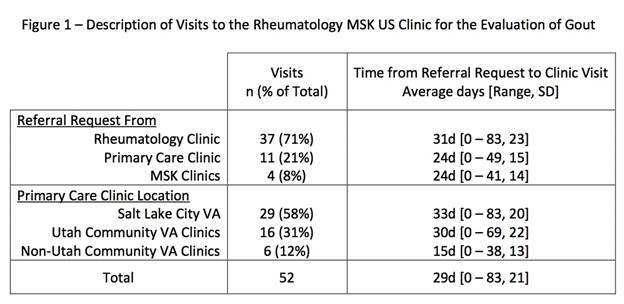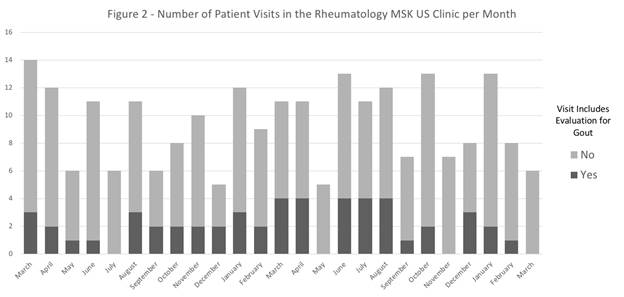Session Information
Date: Sunday, October 21, 2018
Title: Education Poster
Session Type: ACR Poster Session A
Session Time: 9:00AM-11:00AM


Disclosure: G. A. Kunkel, None; A. Barker, None; J. Timm, None; C. L. Koening, None; M. J. Battistone, ABIM Rheumatology Exam Committee, 9.
To cite this abstract in AMA style:
Kunkel GA, Barker A, Timm J, Koening CL, Battistone MJ. Development of Focused Musculoskeletal Ultrasound Training for Primary Care Providers to Facilitate the Diagnosis of Gout: Initial Steps in an Educational Needs Assessment [abstract]. Arthritis Rheumatol. 2018; 70 (suppl 9). https://acrabstracts.org/abstract/development-of-focused-musculoskeletal-ultrasound-training-for-primary-care-providers-to-facilitate-the-diagnosis-of-gout-initial-steps-in-an-educational-needs-assessment/. Accessed .« Back to 2018 ACR/ARHP Annual Meeting
ACR Meeting Abstracts - https://acrabstracts.org/abstract/development-of-focused-musculoskeletal-ultrasound-training-for-primary-care-providers-to-facilitate-the-diagnosis-of-gout-initial-steps-in-an-educational-needs-assessment/
